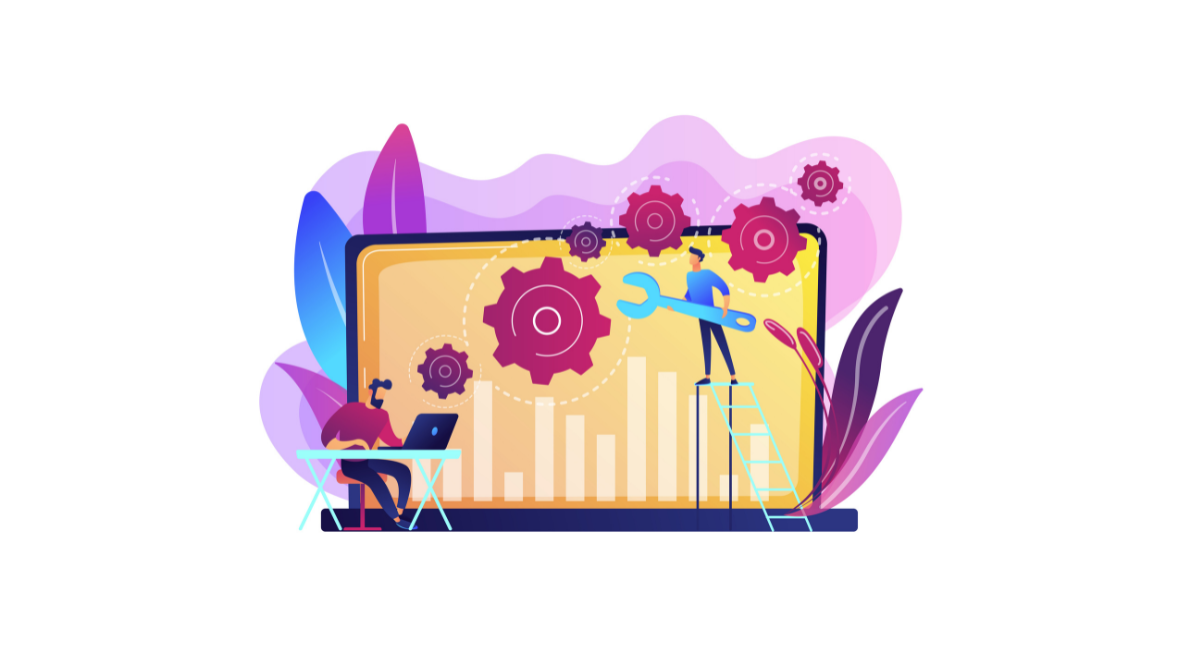Last week, we ran an interesting article on Big Data and how HappyFox uses it to serve our customers better. Leading from that, we have an interview with Craig Borowski, Market Analyst for the CRM, Customer Service and ITSM markets for Software Advice, who has been involved with Big Data from when it wasn’t even called so.
He recently published the article which provided the impetus for the previous article and now he is back, to help us dig deep into the wonderful world of Big Data.
Craig was working for the Ministry of Education of Taiwan in 1998 when he was involved in the updating of the standardized examinations questions set used for determining college entrance. Since then, he has gone on to participate in bigger projects that have defined the spirit of Big Data analyses.
HappyFox (HF): What, if any, are the drawbacks of our growing need for Big Data? Doesn’t it sound rather Orwellian in concept?
Craig Borowski (CB): [pullquote]Good customer engagement is the foundation of excellent customer service.[/pullquote]It does sound Orwellian. And many are concerned about Big Brother’s interest in Big Data. The media deserves a lot of credit for fostering the public discussion about data collection. But they also deserve some of the blame for occasionally overstating the risks and focusing more on the negatives than
the positives.
We’re in a period of transition and many (governments, corporations and individuals) are still trying to find the right balance between respecting privacy and learning from the wealth of data we create in our on- and offline lives. It’s possible that we’ve already passed the most heated part of the discussion and moving forward the public will be more comfortable with it. It’s bound to become a more accepted part of life, especially once we’ve more clearly defined that line between our private lives and our public data.
HF: How far can Big Data take us forward in automating customer service? Can it, one day, replace humans totally?
CB: Way back in 2011 Gartner raised some eyebrows with its prediction that, “By 2020, customers will manage 85% of their relationship with the enterprise without interacting with a human.” Though it’s hard to say now if we’re still on track to meet that 85%, it’s easy to look and around and see far fewer raised eyebrows. More industry observers now agree that the overall movement of customer service technology
is towards increased automation and better self-service offerings.It’s important to point out, that while this will decrease the cost of providing customer service and will help businesses run more efficiently, these aren’t necessarily the primary motivations for the shift. Instead, many companies are realizing that customers actually prefer, in many cases, to solve their own customer service issues. They just need companies to provide the right resources to do that. FAQs, knowledge bases, virtual agents and assistants are just some of the ways these resources can be provided. And when they are, it’s a win-win situation. Customers are happier and so more loyal, and businesses spend less on providing service while enjoying that increased customer loyalty.
HF: Are there any pitfalls to predictive analysis?
CB: It can be an expensive undertaking, especially in the preliminary fact-finding stages. Many companies need to jump in headfirst and start searching for value within big data analyses before they’re even convinced that the value exists. Some find that predictive analyses do add great value, others find much less. Many companies approach Big Data proposals cautiously. But companies are learning all the time what works and what doesn’t, so moving forward these choices should become easier.
HF: Has Big Data helped level the playing field, in the battle between online vs traditional retail stores?
CB: It certainly has the potential to, though it’s probably too early to make that call now. Online retailers were some of the early pioneers of using Big Data to more effectively market and sell products, often with great accuracy and seemingly supernatural predictive powers. Take for example Amazon’s “Suggestions for you” strategy, which they based off Big Data observations that people who buy product X are more likely to also buy products Y and Z.
Of course, it’s easier to collect data by recording online patterns than it is to collect it in real life, in brick-and-mortar retail stores. That doesn’t mean it’s impossible though, and there are many examples of traditional retailers gleaning unique insight from Big Data analyses. Some have been handled clumsily. But again, we’re in a period of transition, and much of these issues will get ironed out over the next several years.
HF: What does this [growing use of Big Data] mean for the future?
CB: It really means two things: First, customers’ expectations for the products and services they use will continue to rise. Specifically, their expectations for what makes a great product or service— one which they’ll be loyal to and recommend to friends— will keep growing. As part of this trend, we’ll continue to see more empowerment of individual customers. Both happy and unhappy customers are increasingly turning to social media and online reviews sites to share their experiences. This presents a challenge to companies, as they need to monitor and engage more interactions. Those that don’t engage on an individual level will lose out to those that do.
At the same time, and this is the second point, companies have a growing variety of software tools available to meet these changes and engage each individual customer. Where the value of Big Data comes into play is in the management of these individual engagements. Companies that adopt agile CRM methods and share their data efficiently between their own internal departments (marketing, sales, service) will realize more of Big Data’s potential. And rather than struggling to meet rising consumer expectations, they’ll be leading them. Not only will they add more value to more customer interactions, they’ll also add value and competitive advantage to their day-to-day business operations.
HF: What does Big Data mean for a software product like HappyFox?
CB: HappyFox is a great example of a second-generation platform: one which was designed from the ground up with a clear appreciation for the potential and challenges of Big Data. First of all, it’s a true omni-channel platform. By integrating all contact channels together, it gives companies the infrastructure to give customers what they want: an effortless and consistent experience, whenever and however they contact a business. Secondly, HappyFox offers flexible ticket management, making it easy to adapt to the needs of specific companies or even specific customers.
HappyFox also offers many automation features. These are growing increasingly important. As companies adapt to meet rising customer expectations, many will struggle to do so without increasing the burden on (and cost of providing) customer support. Software that can automate routine or repetitive tasks frees staff up to focus more on providing great service in each individual interaction.
HF: And how can this improve customer engagement and customer service?
CB: Good customer engagement is the foundation of excellent customer service. Years ago, customer engagement simply meant picking up the phone whenever a customer called. Now, most customers, especially Millennials and younger generations, expect good engagement whenever and wherever they reach out. If they use live chat to follow up on a customer service question, they expect that the live chat agent will be aware of and have all the information from their previous interactions, even those that took place via email, phone or some other channel.
Companies that meet this expectation will be rewarded with more customer loyalty and better word-of-mouth advertising; companies that don’t will spend more time addressing complaints and frustration online.
Thank you Craig for taking the time to share with us the wealth of your knowledge!











